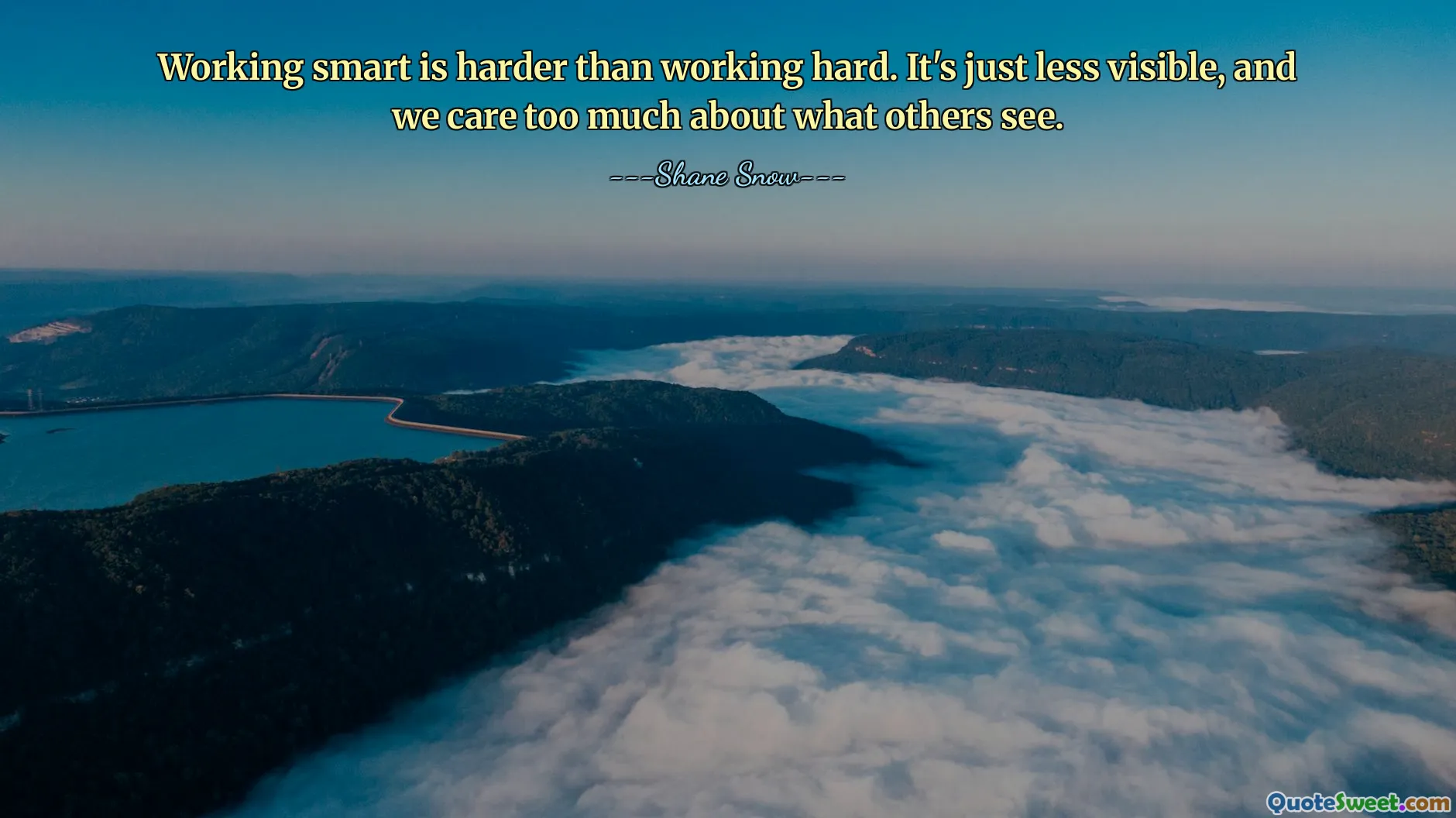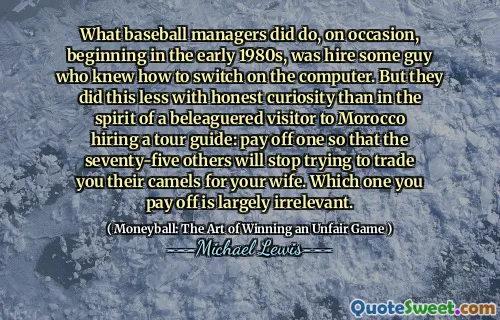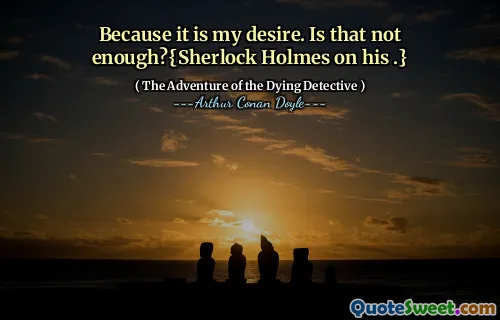
Working smart is harder than working hard. It's just less visible, and we care too much about what others see.
This quote by Shane Snow highlights a profound paradox in our approach to work and productivity. At first glance, the idea that working smart is harder than working hard might seem counterintuitive since working hard generally implies putting in a lot of physical or mental effort. However, the insight lies in understanding that "working smart" requires a deeper level of thinking, planning, and strategic action. It isn’t just about effort but about effectiveness and efficiency, which often involves invisible intellectual labor—problem-solving, prioritizing, leveraging resources, and continuous learning.
Snow points out a societal tendency to equate visible effort with value. Physical signs of working hard—long hours, exhaustion, busyness—are easily observed and often praised, while the quiet, unseen processes of intelligent work can go unnoticed or unappreciated. Our concern for external validation frequently pushes us to showcase effort rather than results, encouraging quantity over quality.
This reflection invites us to reconsider how we measure and present our work. It challenges the culture of overwork and advocates for smart strategies that yield sustainable success. Embracing working smart means focusing on impact rather than mere activity, even if it means our productivity isn't immediately apparent to others. Ultimately, it’s a call for valuing substance over show and cultivating self-awareness and integrity in how we pursue goals, reminding us that what matters most is the outcome, not the optics.











